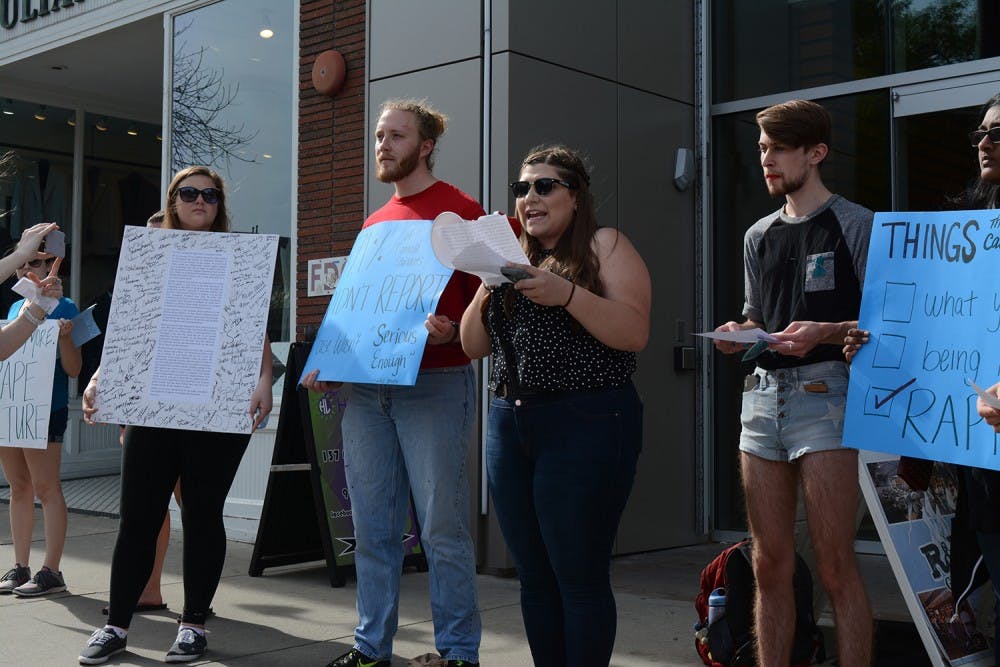After the letter, Lake said colleges rewrote their policies and created programs. At UNC, sexual assault investigations were moved from the jurisdiction of the student-run Honor Court system to the Title IX Office.
“The federal government expected us to respond in four different ways,” he said. “We had to have specific management in place, we had to adapt our management processes to have grievance programs, and there was a whole bunch of stuff on investigating and hearing a case. The other feature, which is not to be dismissed, is the impacted individual work. We were asked to provided resources, you know, counseling (and) no-contact orders, stuff like that.”
Though cases like the one between Robinson and Artis stand out, Lake said most of the work he did as a Title IX officer did not relate to investigating assaults.
“What didn’t prepare me to be a Title IX officer was that a lot of people didn’t want disciplinary actions,” he said. “You were operating more like a concierge than a prosecutor.”
Lake said that most of the work he did involved connecting survivors to resources, providing them with support and helping them obtain no-contact orders. He said many of the people he worked with simply wanted help recovering from the experience instead of retribution.
Some UNC students advocate for survivors to speak out about their experiences. Lake said these efforts, many of which are entirely student-run, are working.
“The one thing that’s probably most notable nationally (that has) been in the UNC system is more people are reporting,” Lake said. “Still not as many as we think are out there, but more people are coming forward now.”
One of the biggest questions surrounding sexual assault on campuses is if law enforcement or campuses and their Title IX offices should investigate claims and hold perpetrators accountable.
“All of a sudden, colleges found themselves pushing civilians to run systems similar to a criminal justice system,” Lake said. “It raised a host of issues including due process and training. That debate will continue for years. The thing I’ve noticed is the campus focus is combating discrimination, where the criminal justice system is really about crime and punishment.”
Lake said that there are situations where a Title IX Office can provide services, but does not have the jurisdiction to pursue charges.
“There’s actually quite a bit of stuff that overlaps and quite a bit that doesn’t,” he said. “For example, let’s say you send a student on study abroad and they get sexually assaulted. You have no way to send that person to justice, but you’ve got a student coming back who needs resources.”
Matt Kaiser, an attorney with years of experience defending students accused of sexual assault, said proceedings at a court and in a school can differ a lot.
To get the day's news and headlines in your inbox each morning, sign up for our email newsletters.
“It’s a hard question to answer because so many schools do it so differently,” he said. “Generally if you’re going through the normal justice system you’re going through a set process where you have rights that have been developed over centuries. We’ve got a system of established rules on how to treat people fairly.”
Kaiser said schools often help students by focusing the proceedings on rehabilitation and education instead of criminal punishment, but frequently fall short of the justice system in terms of fairness to both parties.
“(The criminal justice system is) a process that’s been tested and refined over a long time,” he said. “I think it’s pretty good. With schools, they’re just making it up. New ideas are good, but they don’t always have the same breadth of experience.”
Kaiser said many of the cases he’s worked on have come down to misunderstandings of consent. While criminal cases often deal with intentional rape and knowledge of lack of consent, many universities handle situations where consent is unclear.
“What’s interesting and very rewarding about these cases is that you get to know the people and their families really, really well,” he said. “In general these cases aren’t about the things criminal courts care about. They want to punish. The cases we see on campus are so much more ambiguous, and often they turn on misunderstandings about consent.”
Kaiser has been to colleges across the country, and said he believes there needs to a better standard of consent education in higher education so that the system works better for everyone.
“I think that schools are trying to punish their way through that conversation, and I think that’s really sad,” Kaiser said. “The most effective mechanism schools should employ is education.”
university@dailytarheel.com



